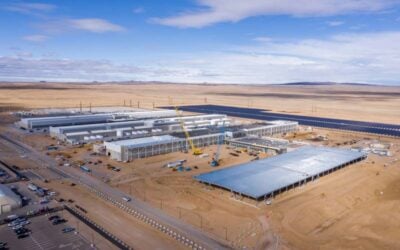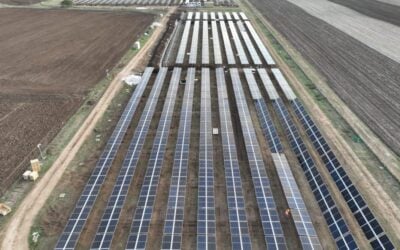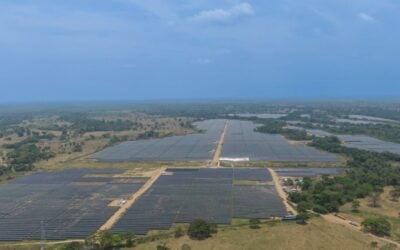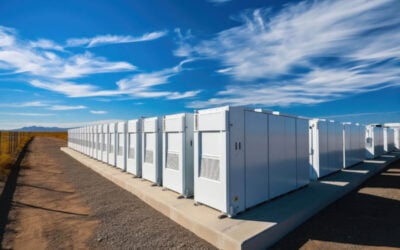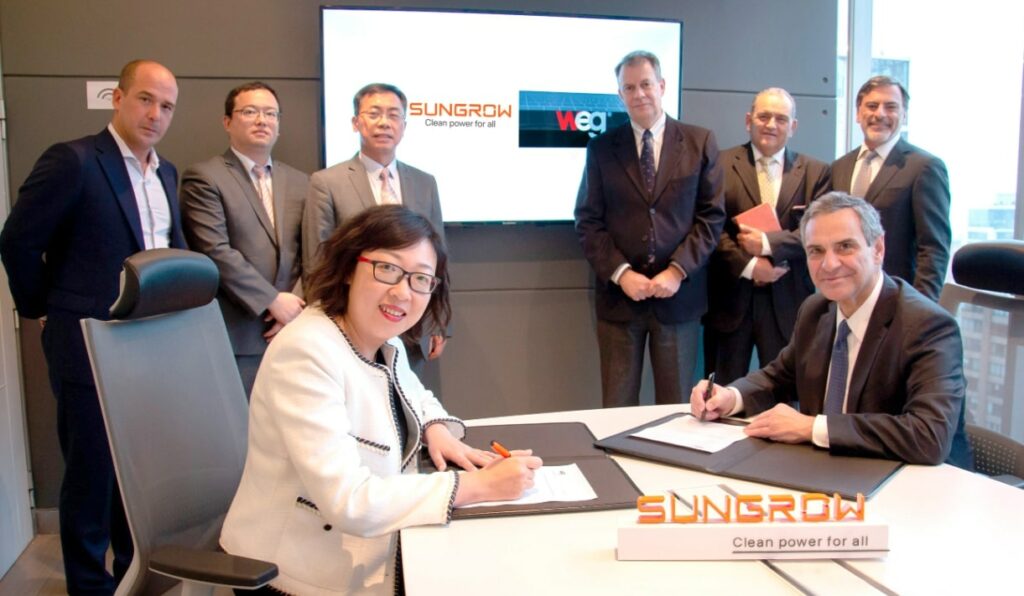
Inverter and BESS company Sungrow will supply a 60MW/132MWh system for an operational PV plant in Chile.
Sungrow will supply its liquid-cooled battery energy storage system (BESS) solution, the PowerTitan, for the 72.8MW Maria Elena Solar Park in Antofagasta, Chile. The BESS will provide renewable load shifting services, moving the solar PV generation from the day when it is abundant in Chile to the evening when it begins to tail off.
Enjoy 12 months of exclusive analysis
- Regular insight and analysis of the industry’s biggest developments
- In-depth interviews with the industry’s leading figures
- Annual digital subscription to the PV Tech Power journal
- Discounts on Solar Media’s portfolio of events, in-person and virtual
The project is owned by the WEG-4 fund, managed by Santiago-headquartered investment manager WEG Capital.
Eduardo Escaffi, partner from WEG-4 said: “We selected Sungrow as our dedicated ESS provider due to their proven track record in the energy storage market, and the competitive features of their products and services, securing the best performance of our assets in the long term.”
Chile is targeting 70% renewable generation by 2030 and passed a bill late last year which gave standalone energy storage its own dedicated status to participate in the country’s electricity market, the National Electric System (NES).
Because that has come relatively late, most projects in advanced development or in construction are co-located with solar PV or other generation sites sharing a single point of interconnection. multinational energy firms Enel and Engie started construction on 67MW and 68MW BESS projects respectively at existing renewable generation plants, while AES commissioned a 112MW co-located project in July.
Developer Flexen partner Eduardo Tabbush claimed the firm has the most advanced standalone BESS projects of significant scale, with three totalling 1GW targeting ready-to-build (RTB) in Q1 2025, in a recent interview with Energy-Storage.news.
The government still needs to approve a new capacity market regulation called DS62 which will ensure capacity market payments for standalone energy storage assets, a key pillar of the business case which is expected to account for 40% of BESS revenues.
Two-hour duration energy storage systems will receive 70% of the headline capacity market tariff while four-hour ones will receive 95%, leading most new projects to be four-hour ones.
Returning for the second edition in Santiago, Chile, the Energy Storage Summit Latin America will explore opportunities in countries such as Chile, Peru, Colombia, Argentina, Brazil and Mexico. Join Solar Media on October 17-18 to meet with investors, policy makers, developers, utilities, network operators, technology providers, EPCs, consultants, law firms and more to make sure you are a part of the rapidly evolving storage landscape in Latin America.

